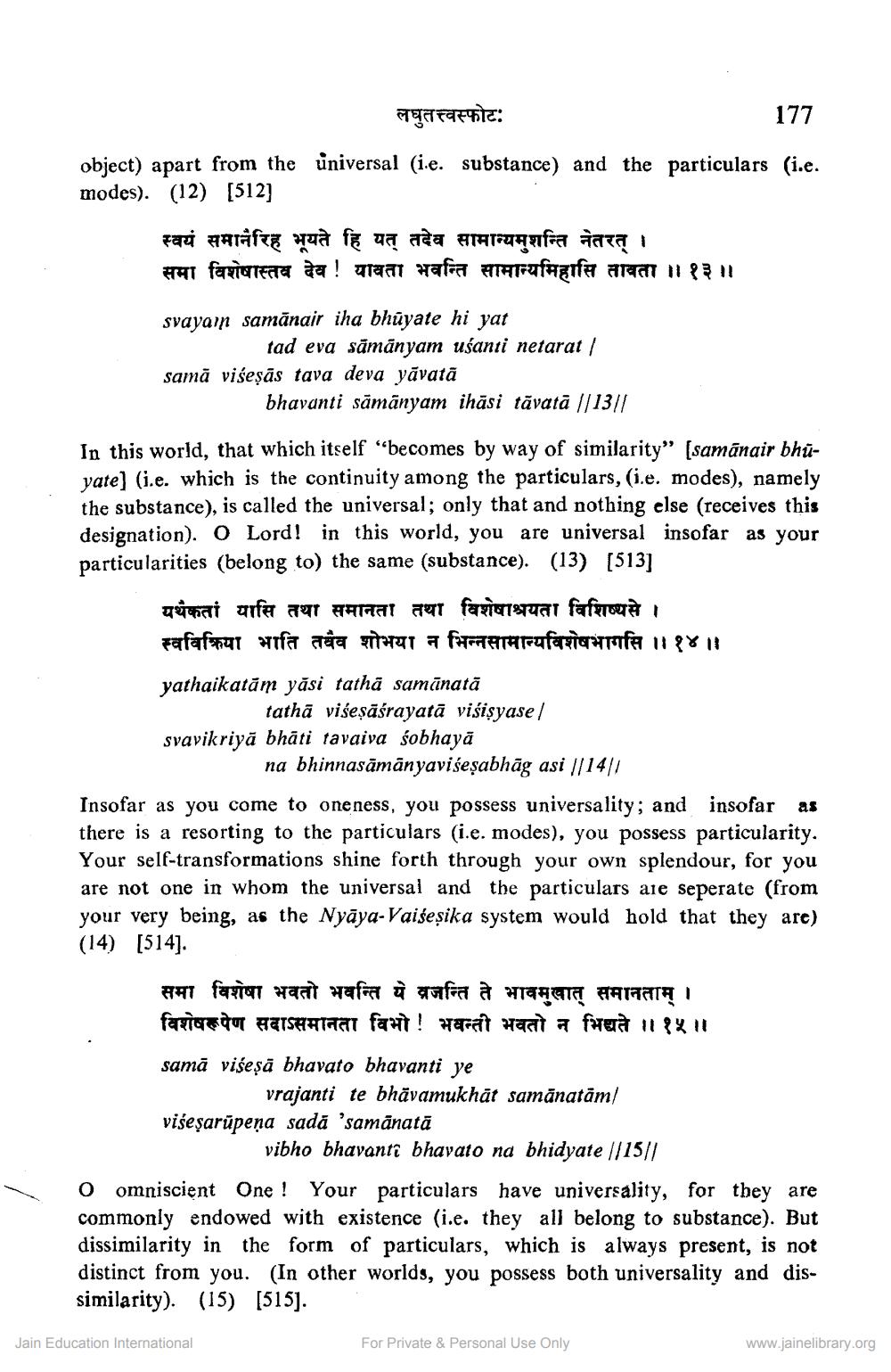________________
लघुतत्त्वस्फोट:
177
object) apart from the universal (i.e. substance) and the particulars (i.e. modes). (12) [512]
स्वयं समानैरिह भूयते हि यत् तदेव सामान्यमुशन्ति नेतरत् ।
eret fagionena da! anamı xafta atmızafazıfa arzan 11 23 IL
svayam samānair iha bhūyate hi yat
tad eva samanyam usanti netarat | samā viseṣās tava deva yāvatā
bhavanti samanyam ihāsi tāvatā ||13||
In this world, that which itself "becomes by way of similarity" [samānair bhūyate] (i.e. which is the continuity among the particulars, (i.e. modes), namely the substance), is called the universal; only that and nothing else (receives this designation). O Lord! in this world, you are universal insofar as your particularities (belong to) the same (substance). (13) [513]
यथैकतां यासि तथा समानता तथा विशेषाश्रयता विशिष्यसे । स्वविक्रिया भाति तवैव शोभया न भिन्नसामान्यविशेषभागसि ॥ १४ ॥
yathaikatām yāsi tathā samānatā
tatha viseṣāśrayatā visiṣyase/ svavikriya bhāti tavaiva sobhayā
na bhinnasāmānyaviseṣabhāg asi ||14||
Insofar as you come to oneness, you possess universality; and insofar as there is a resorting to the particulars (i.e. modes), you possess particularity. Your self-transformations shine forth through your own splendour, for you are not one in whom the universal and the particulars are seperate (from your very being, as the Nyaya-Vaiseṣika system would hold that they are) (14) [514].
समा विशेषा भवतो भवन्ति ये व्रजन्ति ते भावमुखात् समानताम् । विशेषरूपेण सदाऽसमानता विभो ! भवन्ती भवतो न भिद्यते ।। १५ ।।
samă viseṣā bhavato bhavanti ye
vrajanti te bhāvamukhāt samānatām/ višeşarupena sadā 'samānatā
vibho bhavanti bhavato na bhidyate [/15/
O omniscient One! Your particulars have universality, for they are commonly endowed with existence (i.e. they all belong to substance). But dissimilarity in the form of particulars, which is always present, is not distinct from you. (In other worlds, you possess both universality and dissimilarity). (15) [515].
Jain Education International
For Private & Personal Use Only
www.jainelibrary.org




